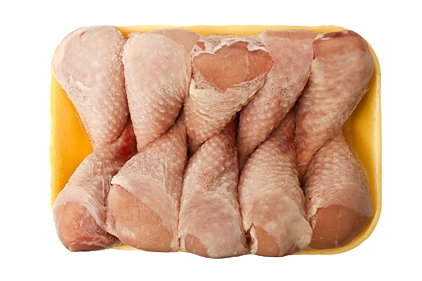The U.S. Department of Agriculture's (USDA) Food Safety and Inspection Service (FSIS), Washington, D.C., announced a critical step forward in making chicken and turkey products safer for Americans to eat.
Poultry companies will have to meet new requirements to control Salmonella and Campylobacter, and up to 5,000 foodborne illnesses will be prevented each year as a result of the New Poultry Inspection System (NPIS), an updated science-based inspection system that positions food safety inspectors throughout poultry facilities in a smarter way.
"The United States has been relying on a poultry inspection model that dates back to 1957, while rates of foodborne illness due to Salmonella and Campylobacter remain stubbornly high. The system we are announcing today imposes stricter requirements on the poultry industry and places our trained inspectors where they can better ensure food is being processed safely. These improvements make use of sound science to modernize food safety procedures and prevent thousands of illnesses each year," says Tom Vilsack, agriculture secretary.
FSIS will now require that all poultry companies take measures to prevent Salmonella and Campylobacter contamination, rather than addressing contamination after it occurs. Also, for the first time ever, all poultry facilities will be required to perform their own microbiological testing at two points in their production process to show that they are controlling Salmonella and Campylobacter. These requirements are in addition to FSIS' own testing, which the agency will continue to perform.
FSIS is also introducing the optional NPIS, in which poultry companies must sort their own product for quality defects before presenting it to FSIS inspectors. This system allows for FSIS inspectors to focus more on strategies that are proven to strengthen food safety. More inspectors will now be available to more frequently remove birds from the evisceration line for close food safety examinations, take samples for testing, check plant sanitation, verify compliance with food safety plans, observe live birds for signs of disease or mistreatment and ensure plants are meeting all applicable regulations.
The maximum line speeds for plants that newly adopt the NPIS have remained capped at 140 birds per minute, consistent with the maximum speed under existing inspection programs. Additionally, all companies operating under the NPIS must maintain a program to encourage the early reporting of work-related injuries and illnesses, and FSIS employees will receive new instructions on how to report workplace hazards that may affect plant workers, including access to a confidential 1-800 number to report concerns directly to OSHA.


